Hey there! If you've ever found yourself puzzled about your utility bills, you're certainly not alone. Understanding your consumption can feel overwhelming, especially when the numbers just don't add up. That's why reaching out for clarification can make all the differenceâwhether it's a simple question or a deeper dive into your energy usage. So, let's explore how to craft the perfect letter for your utility consumption inquiry and get those answers you need!
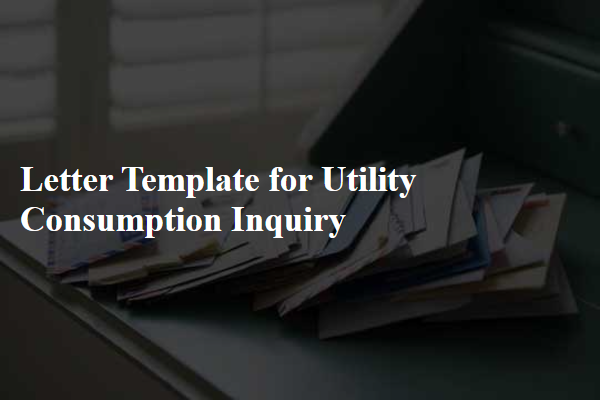
Utility provider's contact information
Utility providers, such as electricity, water, or gas companies, often have customer service lines available for inquiries regarding consumption details. For instance, the Pacific Gas and Electric Company, serving over 16 million customers in Northern and Central California, can be reached at 1-800-743-5000 for account-related questions. Additionally, the New York City Department of Environmental Protection, responsible for water and sewage services for approximately 9 million residents, provides an online chat option at their official website for consumer inquiries. Each utility provider typically maintains detailed records of usage patterns, billing history, and payment options which can be accessed through customer portals. Utility consumption data can help identify trends, allowing users to manage expenses effectively and utilize conservation tips.
Consumer's account details
Utility service accounts often require specific information for consumption inquiries, including the account number, which typically comprises 10 to 12 digits, and the registered address, reflecting the location where the utility service is provided, such as a residential home on Oak Street, Springfield. Account holders should also note the billing period, which generally covers a month or a quarter, and can vary by utility provider. It is essential to have access to recent bills or usage statements to identify any anomalies in consumption patterns. Additionally, gathering information about the type of utility service, such as electricity, water, or gas, plays a crucial role in understanding the inquiry context. Furthermore, consumer identification details such as the name on the account, often matching government-issued identification for verification, are necessary to ensure accurate processing of the inquiry.
Specific consumption period of concern
Utility consumption inquiries often focus on specific periods to analyze usage patterns and identify anomalies. For instance, a customer might request detailed natural gas consumption data from January 2022 to March 2022. High winter usage typically reflects heating needs, measured in therms. Centralized billing and meter reading processes play crucial roles during this timeframe, ensuring accuracy and preventing discrepancies. Understanding peak usage times, like evenings or weekends, aids in assessing whether patterns align with historical averages. Furthermore, customers might seek explanations for sudden spikes, potentially linked to weather events or equipment malfunctions. An analysis of energy efficiency measures during this period, such as insulation improvements or appliance upgrades, may also provide insights into consumption behaviors.
Clear description of inquiry or issue
Utility consumption discrepancies often arise in residential settings such as single-family homes and multifamily units. Notable instances include unusually high bills, which may exceed monthly averages by 25% or more, leading residents to question their water, gas, or electricity usage. For example, a household in Los Angeles reporting energy consumption of 800 kWh in June 2023, contrasted with an average of 600 kWh over the past year, necessitates an inquiry into potential causes such as faulty meters, leaks, or changes in appliance use. Accurate assessment of billing periods and meter readings is crucial for understanding these discrepancies, contributing to informed discussions with utility providers like Southern California Edison or the Los Angeles Department of Water and Power.
Contact information for response
Utility consumption inquiries can be crucial for understanding energy usage patterns in households or businesses. Accurate data collection (e.g., kilowatt-hours for electricity, gallons for water) from utility companies like Con Edison or Pacific Gas and Electric can help customers manage costs effectively. Responding to these inquiries typically involves providing contact details, such as phone numbers (area codes included, e.g., 212 for New York), emails, and mailing addresses, to facilitate communication. Utility customer service departments often handle these questions during business hours, with representatives trained in addressing billing discrepancies or usage calculations. Tracking consumption through smart meters is also increasingly popular, giving consumers insights into their usage and potential savings.

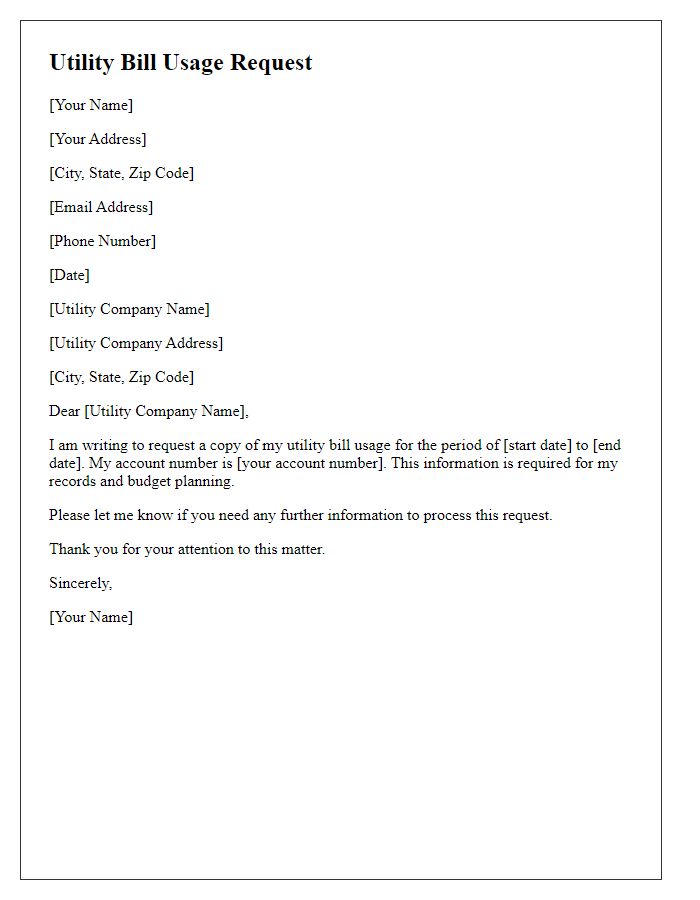
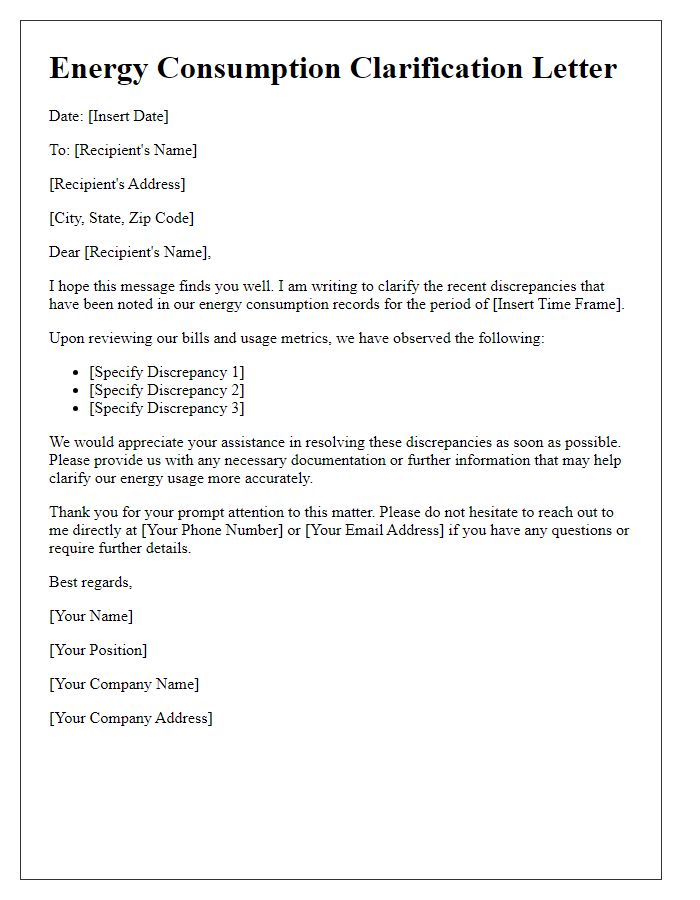
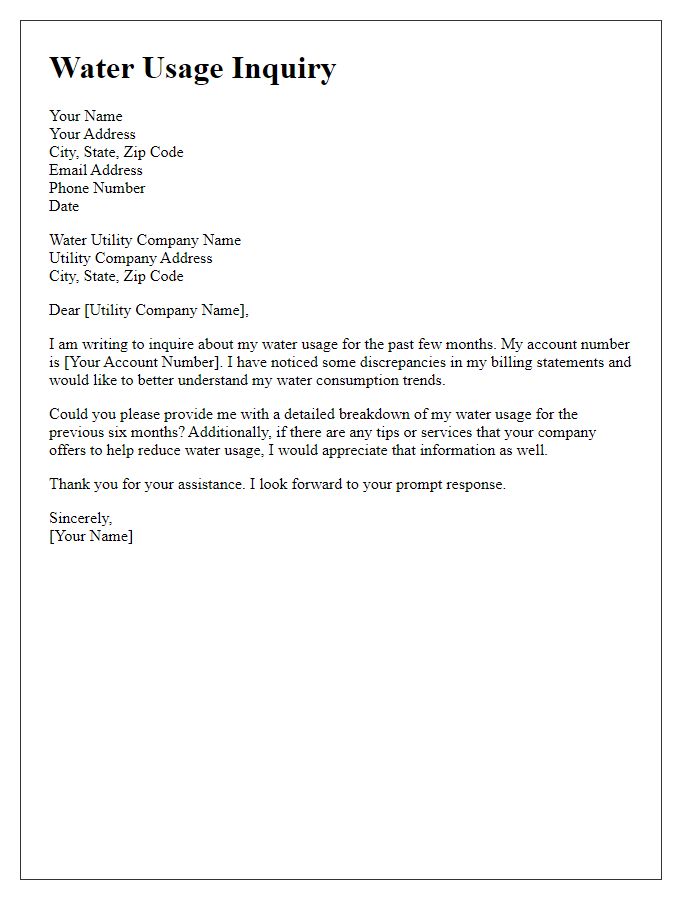
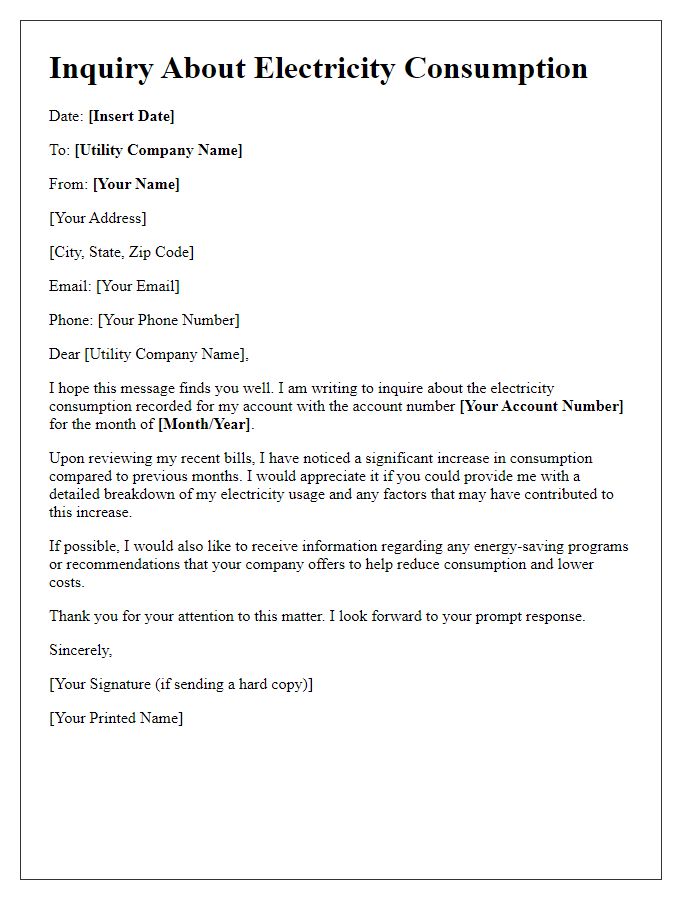
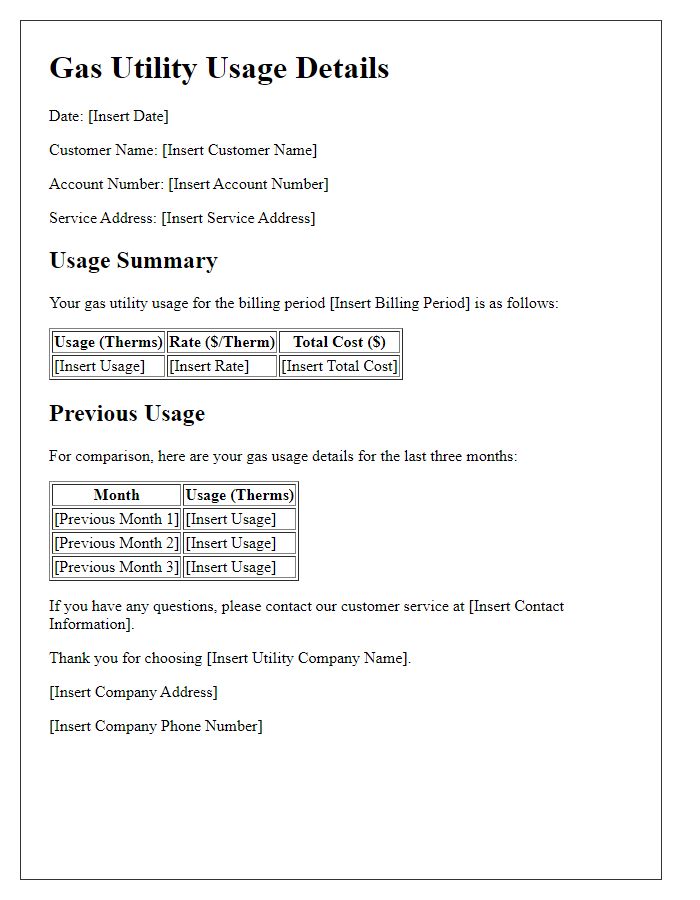
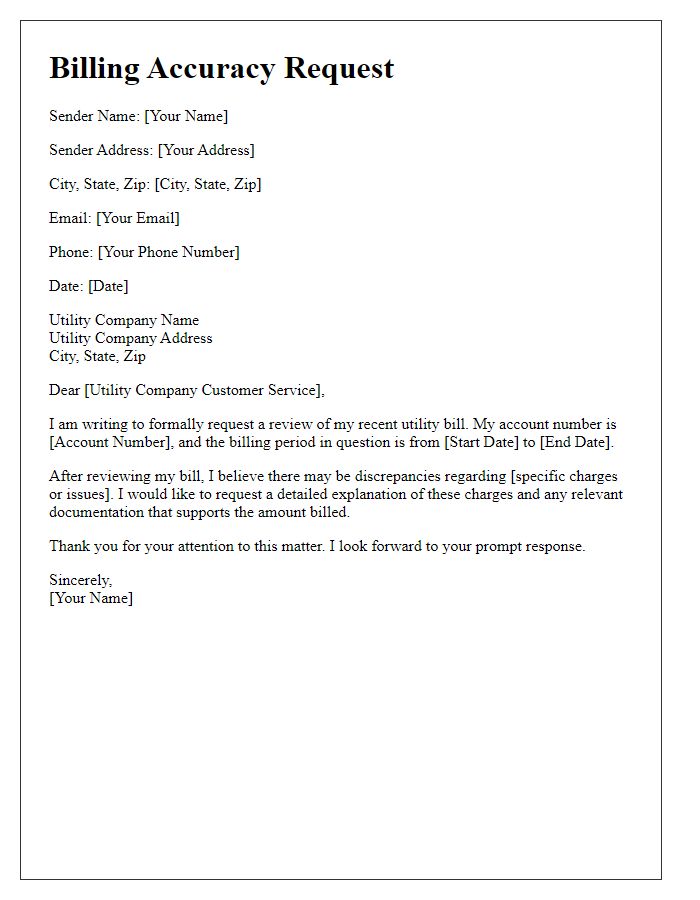
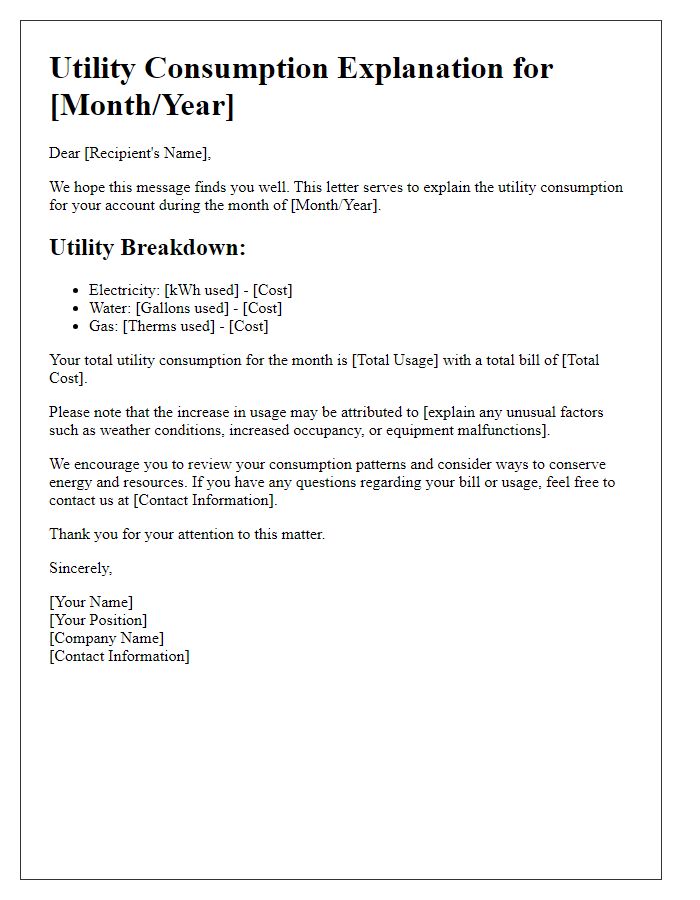
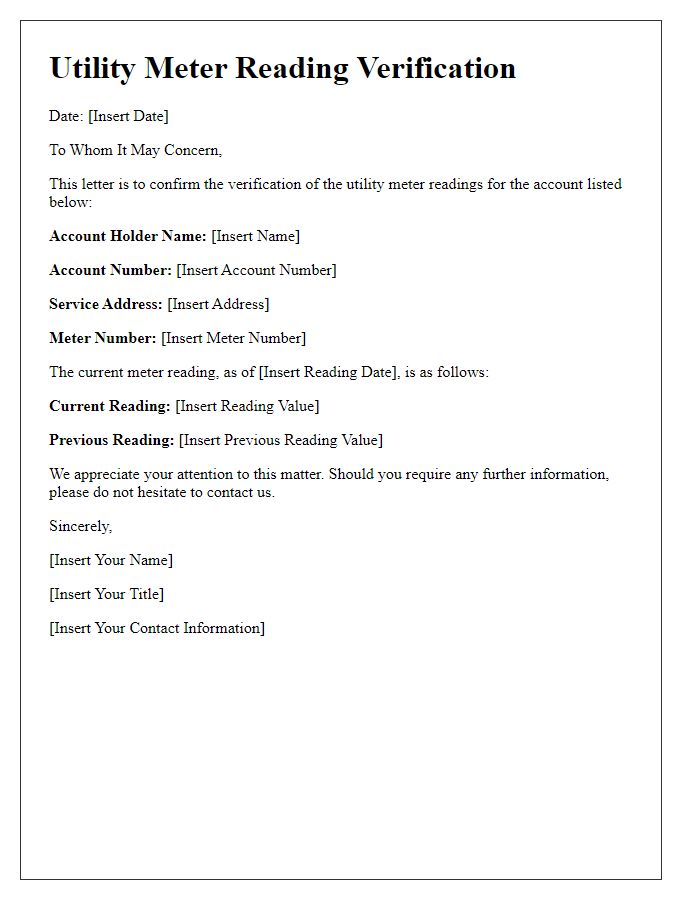
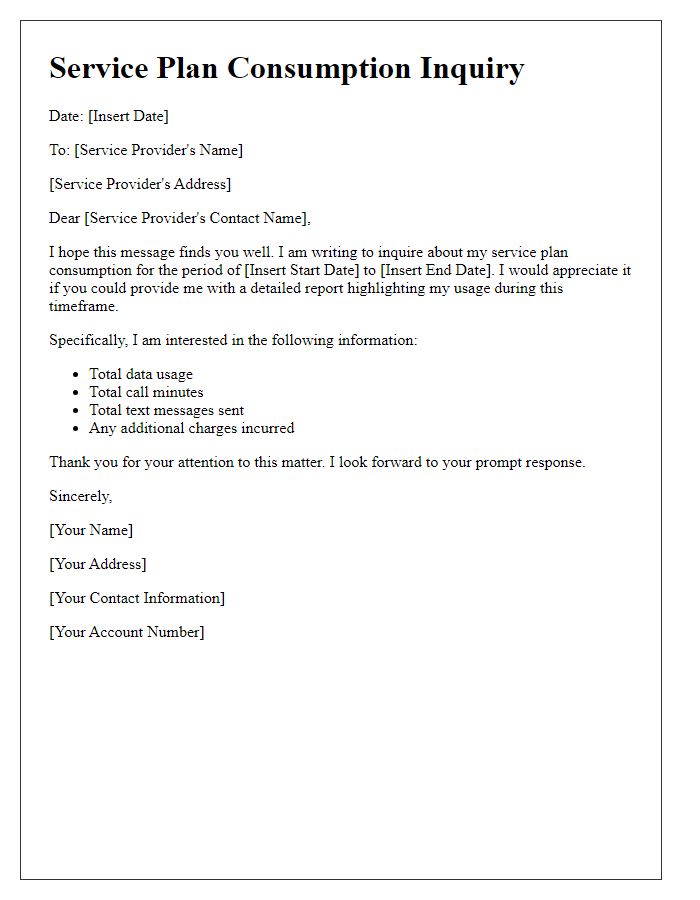
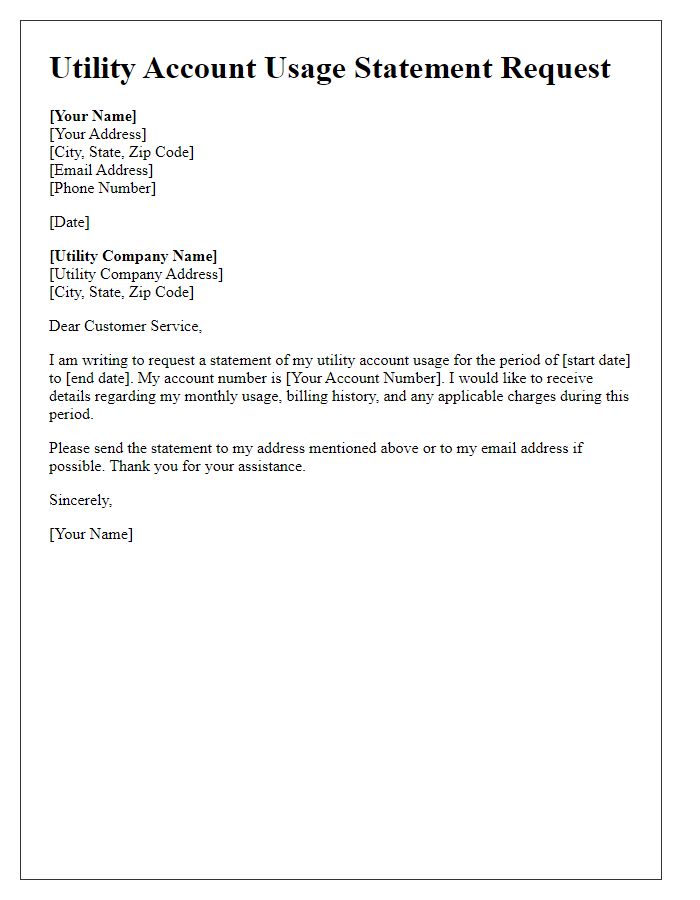


Comments